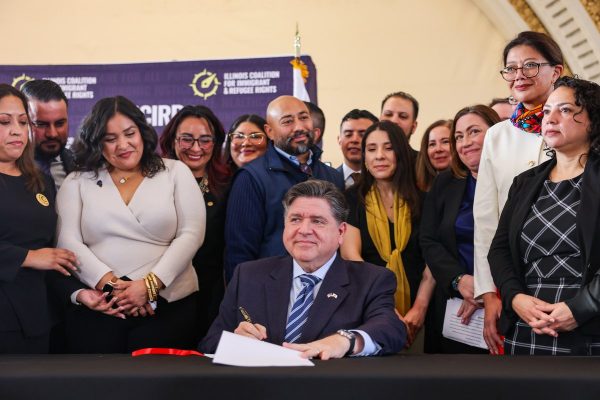College students failing at history
Dec 7, 2006
Last updated on May 12, 2016 at 06:49 a.m.
Editor’s Note: This story originally called William Howard Taft a two-term president. Taft only served one term as president, from 1909-1913. The Daily Illini regrets the error.
Quickly, name the monkey from “Friends”, Homer Simpson’s second child and the self-destructive singer who was married to Kurt Cobain. Now list everything you know about the 27th president, Howard Taft. If anything, you might recall that he was the obese president who got stuck in the bathtub at the White House. This may be interesting, but Taft was also the only man in history to serve as the President of the United States and become Chief Justice of the Supreme Court.
A new report from the Intercollegiate Studies Institute, a Delaware think tank, has shown that college students receive a failing grade when it comes to knowing about American history, politics, and economics. The results of the tests were released in a study entitled, “The Coming Crisis in Citizenship: Higher Education’s Failure to Teach America’s History and Institutions.”
The admittedly conservative group hired researchers at the University of Connecticut to administer a 60-question, multiple-choice test to 14,000 students at 50 different colleges and universities. The average score among seniors was 53.2 percent, or an F. The University of Illinois was not among the schools that were involved in the research.
Get The Daily Illini in your inbox!
“I’m not entirely surprised that, given the method of delivery for historical knowledge, students are not getting what they need,” said Professor Antoinette Burton, History Department Chair.
Burton cited under-funding, over-crowded classes and poor student-to-teacher ratios as possible causes for low history scores in public schools.
She added that undergraduates are also too dependent on virtual information, which leads to poor note-taking and a lack of investment in developing the skills needed for critical thinking.
Burton said that a history education goes beyond memorizing facts.
“Knowledge about dates, in this case times and places, are all important, but they have to be situated in a matrix of other critical skills,” she said. “Here we’re working through the history major to ensure that students who graduate have a kind of factual basis for their knowledge, but also develop other kinds of skills that are portable beyond the major.”
Christian Aillon, junior in LAS, said that he became a history major and secondary education minor because he was inspired by his high school history teacher, who encouraged him to be more analytical.
Aillon said he believes multiple choice tests only encourage note memorization, which means students can pass tests (and teachers can meet government-set standards); then they cannot apply their knowledge, a skill Aillon sees as critical.
“A lot of us see what’s going on in Iraq and with our current government, and whether or not you agree with it, you need a basic understanding of how democracy works and about other cultures,” he said.
These low scores are not a new development.
In 1917, college students scored an average of 49 percent on a history exam in a similar study, and in 1943 only six percent of students could identify the original 13 colonies, according to an article published by Sam Wineburg, a professor of education specializing in history at Stanford University.
The Intercollegiate Studies Institute wrote in the report that they will continue to administer similar studies and track trends and solutions to strengthen students’ grasp of American history, adding, “Nothing less than our nation’s future is at risk.”





